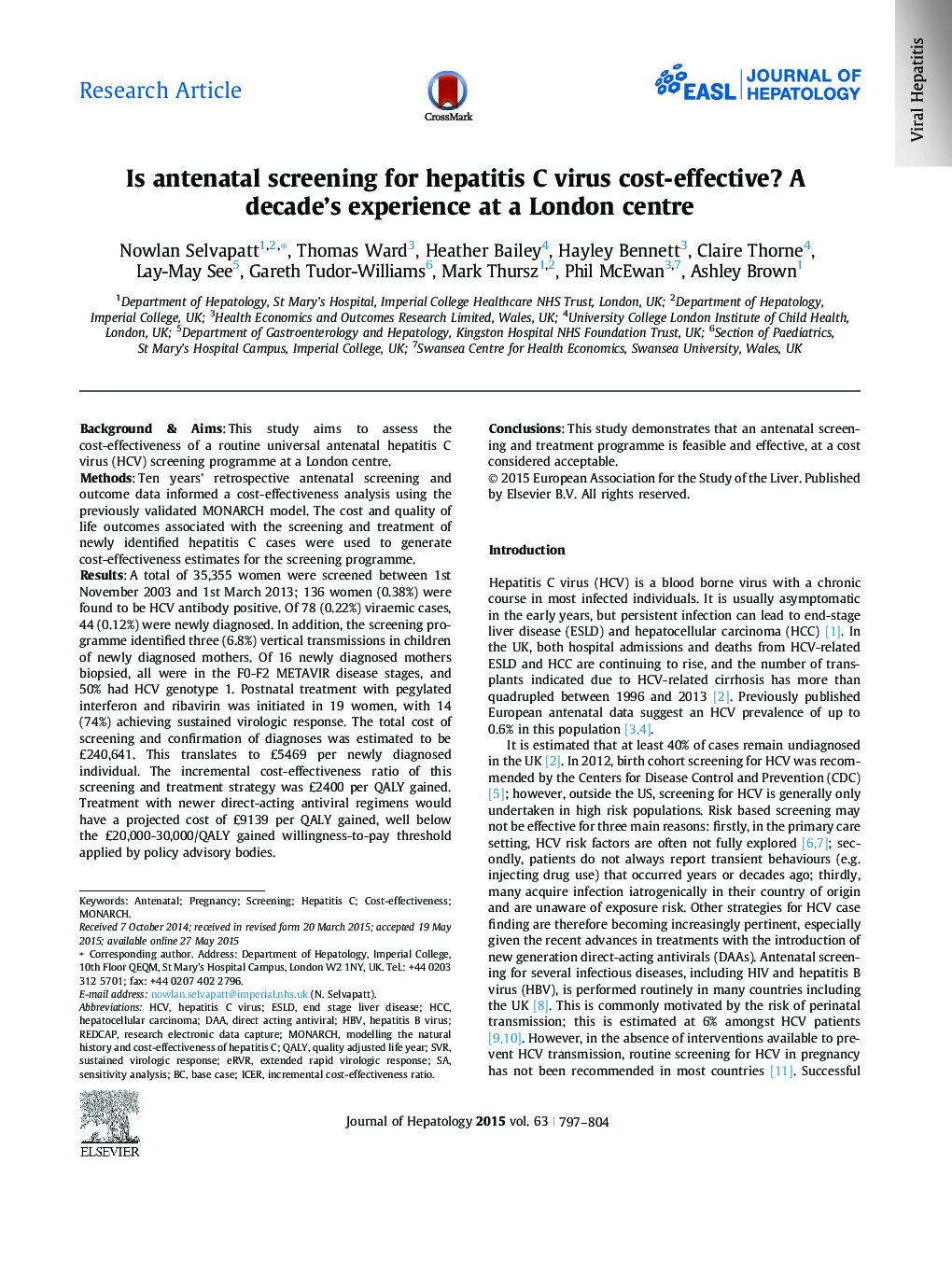| Article ID | Journal | Published Year | Pages | File Type |
|---|---|---|---|---|
| 6102795 | Journal of Hepatology | 2015 | 8 Pages |
Background & AimsThis study aims to assess the cost-effectiveness of a routine universal antenatal hepatitis C virus (HCV) screening programme at a London centre.MethodsTen years' retrospective antenatal screening and outcome data informed a cost-effectiveness analysis using the previously validated MONARCH model. The cost and quality of life outcomes associated with the screening and treatment of newly identified hepatitis C cases were used to generate cost-effectiveness estimates for the screening programme.ResultsA total of 35,355 women were screened between 1st November 2003 and 1st March 2013; 136 women (0.38%) were found to be HCV antibody positive. Of 78 (0.22%) viraemic cases, 44 (0.12%) were newly diagnosed. In addition, the screening programme identified three (6.8%) vertical transmissions in children of newly diagnosed mothers. Of 16 newly diagnosed mothers biopsied, all were in the F0-F2 METAVIR disease stages, and 50% had HCV genotype 1. Postnatal treatment with pegylated interferon and ribavirin was initiated in 19 women, with 14 (74%) achieving sustained virologic response. The total cost of screening and confirmation of diagnoses was estimated to be £240,641. This translates to £5469 per newly diagnosed individual. The incremental cost-effectiveness ratio of this screening and treatment strategy was £2400 per QALY gained. Treatment with newer direct-acting antiviral regimens would have a projected cost of £9139 per QALY gained, well below the £20,000-30,000/QALY gained willingness-to-pay threshold applied by policy advisory bodies.ConclusionsThis study demonstrates that an antenatal screening and treatment programme is feasible and effective, at a cost considered acceptable.
